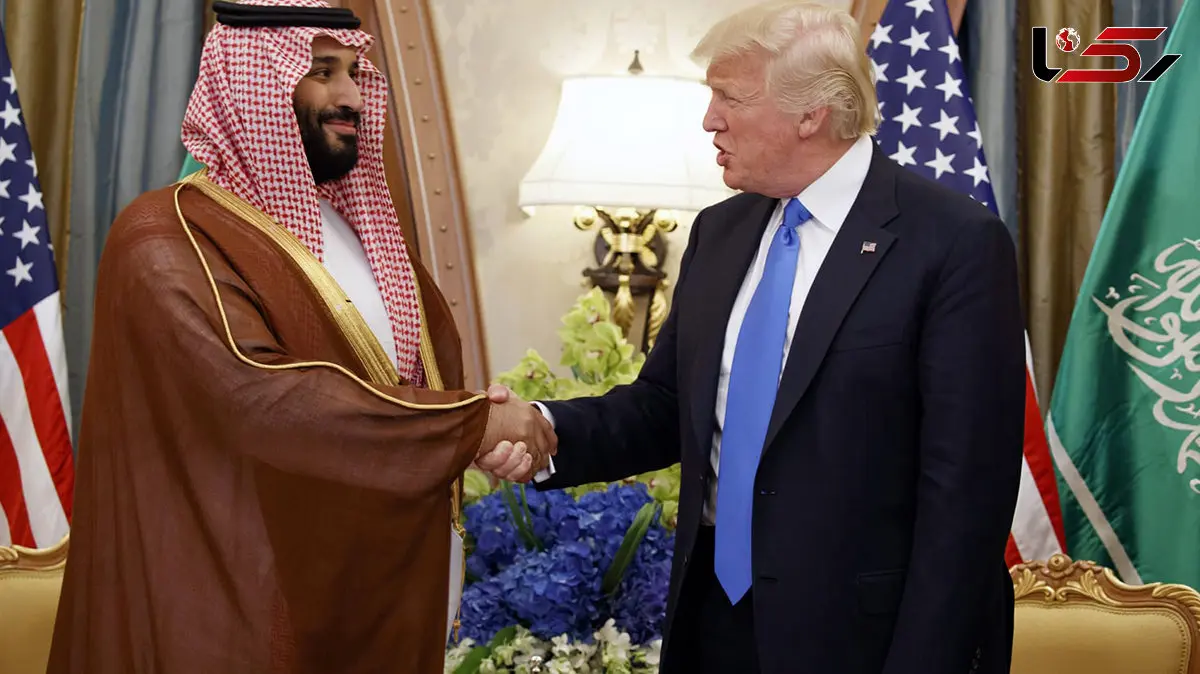A Major Riyadh–Washington Agreement: Big Changes Are Coming
Rokna Political Desk: Riyadh and Washington are on the verge of a historic agreement to strengthen joint defence cooperation and deterrence in the Middle East—a pact grounded in a strategic relationship, Islamic solidarity and an eighty-year partnership between the two nations.

Statements by the U.S. Secretary of Homeland Security regarding an upcoming meeting between the U.S. President and the Saudi Crown Prince, and the plans laid out for that meeting, indicate that Riyadh and Washington are on the brink of a major accord that could reshape the balance of power in the Middle East.
According to Rokna, remarks by U.S. Secretary of Homeland Security Doug Burgum about nuclear negotiations with Saudi Arabia drew wide attention—especially as they came while preparations were underway for Saudi Crown Prince Mohammed bin Salman’s visit to Washington.
At the “Manama Dialogue 2025” conference in Bahrain, Burgum said that talks with Riyadh are ongoing and predicted “many activities” will occur ahead of the November 18 visit. He also expressed optimism that “major announcements” and possibly the signing of an agreement during the Crown Prince’s meeting with U.S. President Donald Trump could follow the talks.
This wave of reaction followed earlier news that Saudi Arabia and Pakistan had signed a mutual defence agreement; a move that fuelled speculation about the possible transfer of nuclear technology from Islamabad to Riyadh.
According to Saudi Press Agency (SPA), the agreement aims to broaden defence cooperation between the two countries and strengthen their joint deterrence against any aggression—so that any attack on either would be considered an attack on both. The SPA report added that the accord builds on an eight-decade partnership, fraternal bonds, Islamic solidarity and shared strategic interests.
Saudi Crown Prince Mohammed bin Salman is preparing for his first trip to the United States in seven years. Analysts cited by the New York Times say that establishing formal relations with Israel will be a process measured in years, not months.
The trip is scheduled for mid-this month, and among its agenda items is a plan for Saudi Arabia and the United States to sign a joint defence agreement similar to the unprecedented security guarantee provided by President Trump to Qatar after Israel’s failed strike on Doha.
According to a U.S. source and another person involved in the trip’s arrangement, Saudi Arabia also wants to acquire F-35 stealth fighter jets for its air force and is keen to quickly begin discussions on an accord that would grant the kingdom access to U.S. technology for developing its civilian nuclear programme.
Securing both a nuclear cooperation agreement and a defence accord—even if, as Crown Prince bin Salman initially sought, they are not ratified by Congress—would count as a major victory for him.
The Biden administration has engaged in negotiations with the Crown Prince on these agreements, but insisted that Saudi Arabia normalise its relations with Israel. Those talks were frozen after Israel’s war in Gaza began more than two years ago. In an interview with Time magazine two weeks ago, Donald Trump said he believed a deal under which Saudi Arabia would establish diplomatic ties with Israel was “very close” and predicted it would happen by year’s end — though he said, “They couldn’t do it during the war … but now, with the ceasefire, it will happen.”
However, Saudi commentator Ali Shihabi, close to the Saudi leadership, told the New York Times that formal ties with Israel this year seem “virtually impossible unless there’s a miraculous change inside Israel.” He added that bin Salman believes normalisation could happen only if Israel takes an irreversible step toward recognising a Palestinian state. He said that such a Saudi–Israeli agreement remains “the last major lever the Arab world has over Israel” on the Palestine question. “The Kingdom wants to use this lever to resolve the problem once and for all, aiming for regional stability,” he said.
Challenges Related to the Saudi-U.S. Nuclear Deal
Although officially described as a peaceful initiative, the Saudi–U.S. nuclear cooperation project faces a set of political, technical and security hurdles that could delay or alter its implementation. The first challenge concerns uranium enrichment and fuel reprocessing: the status of these activities in Saudi Arabia remains unclear. Washington sees domestic enrichment as a pathway to non-peaceful use of nuclear technology, while Riyadh regards it as a sovereign right aligned with its goal of achieving nuclear energy self-sufficiency.
The second challenge involves safeguards and international oversight. Nuclear cooperation between the two sides would require strict compliance with the standards of the International Atomic Energy Agency (IAEA) and the signing of additional protocols to allow full inspections and transparency. Some parties warn that any laxity in these controls could raise future doubts about the programme’s intent.
On the regional and global front, concerns persist that Saudi–U.S. nuclear cooperation could trigger a Middle-East arms-race—especially given ongoing tensions with Iran and the drive of other regional states to pursue similar programmes. These concerns have made Saudi Arabia’s nuclear dossier a sensitive issue for the United States and its allies’ security calculations.
Send Comments